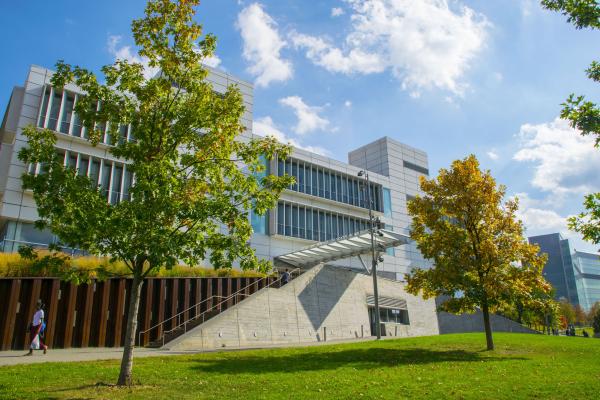News
SSA establishes new BA in Urban Studies and the Built Environment
The Bernard and Anne Spitzer School of Architecture at The City College of New York has established a new undergraduate degree: the Bachelor of Arts in Urban Studies and the Built Environment. This four-year, 36-credit major will address unmet educational needs of enrolled undergraduate students and attract additional students to The City College interested in the central role that the built environment of cities plays in civic life.
The program’s basis within the Spitzer School distinguishes this course of study from other urban studies majors on other CUNY campuses, drawing on the faculty expertise and educational resources of the school’s existing programs in architecture, landscape architecture, urban design, and sustainability.
“City College and the Spitzer School are uniquely positioned to provide a wide and deep understanding of urban issues, developing educational opportunities that benefit the community and engage more thoughtfully with it,” said Dean Marta Gutman.
The BA’s curriculum will combine hands-on, practice-based learning in New York City with an emphasis on justice, equity, and sustainability that will prepare graduates for mission-driven careers that respond to President Vincent Boudreau’s call to envision new ways to foster a culture of urban stewardship and community engagement among CCNY students and alumni.
Graduates of this program will be prepared to enter a wide variety of careers in the built environment professions, including urban planning consultancies, city agencies, real estate development firms, social service and community-based non-profits, and non-design roles in the architecture, engineering, and construction sector.
The requirements for the urban studies and the built environment major are:
- 15 credits in the core curriculum (Introduction to Urban Studies; The City in History; Techniques of Urban Communication; Social Justice and the Built Environment; and Individual, Group, and Society – An Introduction to Sociology);
- 15 credits of elective seminars (with the number of courses dependent on the student’s program); and
- six credits of Capstone project (two courses).
The demand for this program is large, as evident in the growth of urban studies bachelor’s degree programs nationwide over the past two decades.
The initial cohort of students is expected to graduate in 2025.


